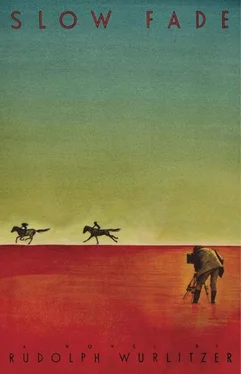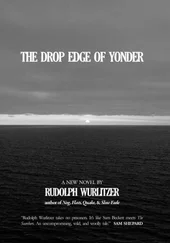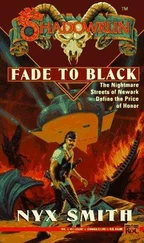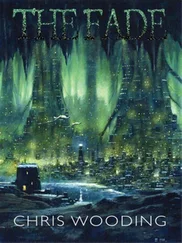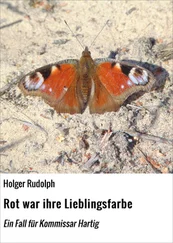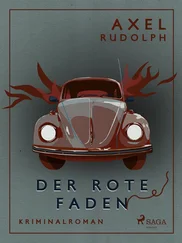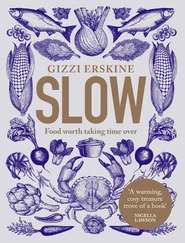“After we buried Early we went on up to Joe Poquet’s place, an old trapper who had a cabin by the head of the lake. When we found him he was lying on his bunk and he had been dead quite a while, because half his face was eaten away by weasels. Joe had written something on a piece of paper: To the Finder. Everything I have is yours. Soon I’m a dead man. We buried Joe as soon as we could, just wanting to get away from that place, and as we were about to pull out a seaplane banked in over the lake and came right out of the sun and landed in front of us.
“The first man out of the plane was Wesley. He was up there fishing with some of his Hollywood friends, and they were looking for Joe Poquet to be a guide for them, their other guide having been too much on the booze. They flew us back to the boat and spent a few days with us helping my father get the boat ready, and then they took off for Goose Bay and we sailed down there as well. I met Wesley in St. John’s and one thing led to another and he offered me a job and, after holding out for two months, I took it and flew off to L.A., where I was his secretary before we got married. Although it wasn’t really like that. There were a lot of in-between times, too.”
“I’m sure there’s a way to bank all of that,” A.D. said.
Evelyn withdrew her hand from his. “I don’t want to bank anything. I had been thinking of Joe Poquet and how he looked when he first walked in after a winter’s trapping. He looked like Wesley did before he went into the park.”
A.D. felt her slipping away and tried to pull her back. “Well, sure. Two brothers gone and then dealing with Wesley’s losses. That’s a burn, all right. Now, if it was me doing the song that’s where I’d find my hook, in all that suffering. ‘Oh baby, don’t shut the door / On Labrador / Don’t go away / with nowhere to stay’. . But don’t get me wrong. I’m not trying to cop your story. I have plenty of stories. I don’t need yours. I love it. I’d use it. But I don’t need it.”
“That’s good, because you can’t have it.”
A.D. held up his hands in surrender. “Hey. Believe me. I don’t want it. No bad intentions. But just for Wesley, we should be traveling together.”
“We can never travel together.”
A.D. didn’t break stride. “Of course not. We have different deals with Wesley. But we can acknowledge each other’s position.”
“Not even that,” Evelyn said, standing up.
She looked down at him and started to say something, then suddenly turned and left. A.D. made no move to stop her. He’d go one more round with both of them, he thought, and if he came up empty he’d jump off the train and land somewhere else. That was one act he knew how to do.
OUT ON the road, Walker was having his own problems with images, unable to summon up a gesture, object, or even visual mood that might allow him to reenter the script. He had started to ponder the story, for one thing, questioning and trying to remember his own experience, and that had produced an almost instant paralysis as well as a smoldering rage toward his father for having trapped him inside such a hokey progression. Until now he had been mostly on automatic, letting A.D. prod him toward expressing some kind of form, however banal, that might lead him toward finding what he was looking for, not just if Clementine was alive or dead, but how he was doing as well. But as he traveled on, crossing the prairies and the Mississippi River and driving into the heart of Illinois and Indiana, his dread increased, finally causing him to veer off the road into a cornfield.
He stumbled out of the van, running between two rows of corn until he collapsed. Hugging the earth, he listened for the drone of an airplane. But there was nothing. Staring up at the empty sky, he shut his eyes. But no image appeared, inside or outside. He ran on until he collapsed again. He was halfway across the field before he remembered Cary Grant running through a cornfield in North by Northwest , a single-engine crop duster hunting him from the air. It was as if he had been unnaturally seized and he sat down and dissolved each image until the scene was erased from his mind. The effort exhausted him, and it was several hours before he backed the van onto the highway and drove toward the state line.
In Ohio he checked into a motel and had a long bath and half a bottle of Scotch before he let himself return to the scene in New Delhi with Lama Yeshe. They were images that carried a great deal more anxiety than Cary Grant running for his life through a cornfield, and he wrote them fast, without stopping, until he was too drunk to go on.
EXTERIOR. NEW DELHI — NIGHT. . Jim and Lacey drunkenly climb the outside stairs to the roof where Lama Yeshe leads a puja. Two dozen men, women, and children sit on thick narrow rugs decorated with snow lions and five-pronged dorjes or powerbolts. Lama Yeshe, or Rinpoche as he’s commonly addressed, meaning “precious teacher,” sits on a rug facing them, his body wrapped in a maroon robe. In front of him a small altar holds several rows of torma (sacrificial cakes), framed photographs of various lamas, and a clay statue of Padmasambhava, the Lotus-born guru. It is a relaxed scene, the children playing and crawling around, the women in their black chubas wearing jade and coral earrings and necklaces, the men in Chinese sneakers, cheap slacks, and short-sleeved shirts. Everyone praying with their malas or rosaries. Lama Yeshe looks up from the text he’s reading aloud and strikes a hand-held drum as he nods to his assistant, a young monk with a shaved head who blasts out a triumphant note on a long Tibetan horn. Over all, a chaos of sound rising from the street, radios blaring popular Hindi songs from roofs and open windows. . To one side of Lama Yeshe sits the only other Westerner — Byron — clean and attentive in faded jeans and white shirt, his blond hair twisted together into a knot at the back of his head like Lama Yeshe’s. Lama Yeshe whispers something to him and he makes his way toward the three strangers. . “Rinpoche will see you at the end of the puja,” he whispers. Jim and Lacey wait until Lama Yeshe ends the ceremony, leading the invocations and prayers as they pass before him, palms pressed together, heads bent forward for a brief blessing. Afterwards, while they’re drinking buttered tea and eating stale cakes and hard candy, Byron motions to Jim and Lacey to come forward. They sit before Lama Yeshe, whose small black eyes shift slowly from one to the other. Lama Yeshe asks where they are from, and when they say “America” he asks how big is it? Are people free there and if they are, how is that freedom measured? What is the color of freedom, the taste and substance of it?. . Jim says he doesn’t know about any of that, he’s just Clementine’s brother who has come over with his wife to find her. . “She is a serious student,” Lama Yeshe says, looking at them while Byron translates. . Lama Yeshe and Byron talk back and forth until Byron explains: “Rinpoche says that Clementine’s questions sometimes point to a beginner’s understanding of the fundamental nature of mind.”. .“I’m glad if she’s a fundamentalist,” Jim says, “but I just want to find her, she hasn’t been in touch with anyone in a year. Her father’s worried. He thinks she might be dead.”. . Lacey interjects, “We’re all frantic with concern.”. .“She’s off on a retreat,” Byron says. . “I don’t care what she’s doing,” Jim says. “Purifying or polluting her mind or her body or whatever, I want to find her.”. . Again Byron and Lama Yeshe talk back and forth in Tibetan, with Lama Yeshe laughing and clapping his hands and offering Lacey hard candy from a plastic bowl. “Rinpoche says your view about purifying and polluting is quite correct and all experiences should be a source of insight. From that one taste you might begin to understand that form and emptiness are the same.” Lama Yeshe then says something to Byron, who tells them to wait while he goes downstairs to get a letter from Clementine. While he’s gone, they sit silently with Lama Yeshe.
Читать дальше
